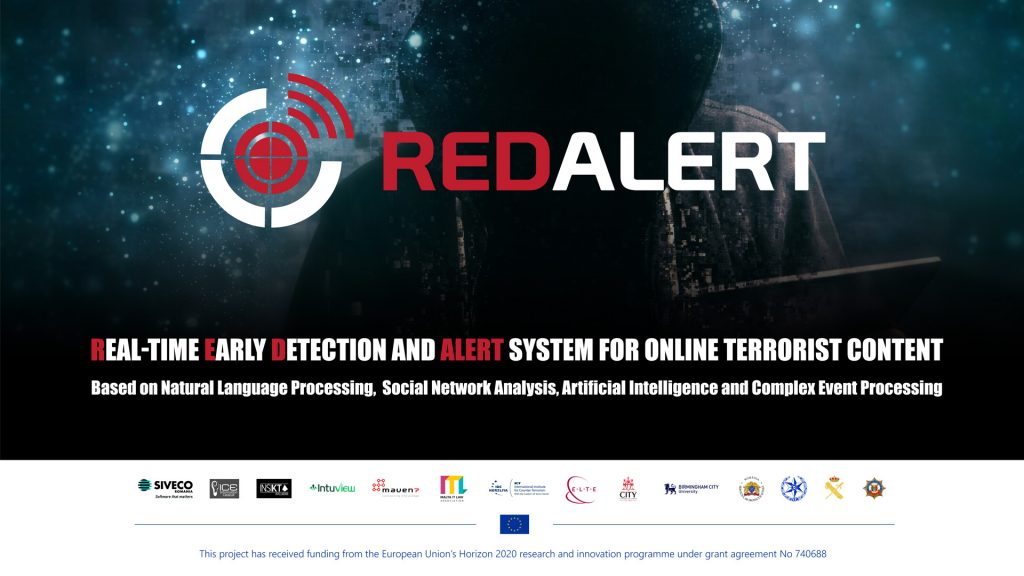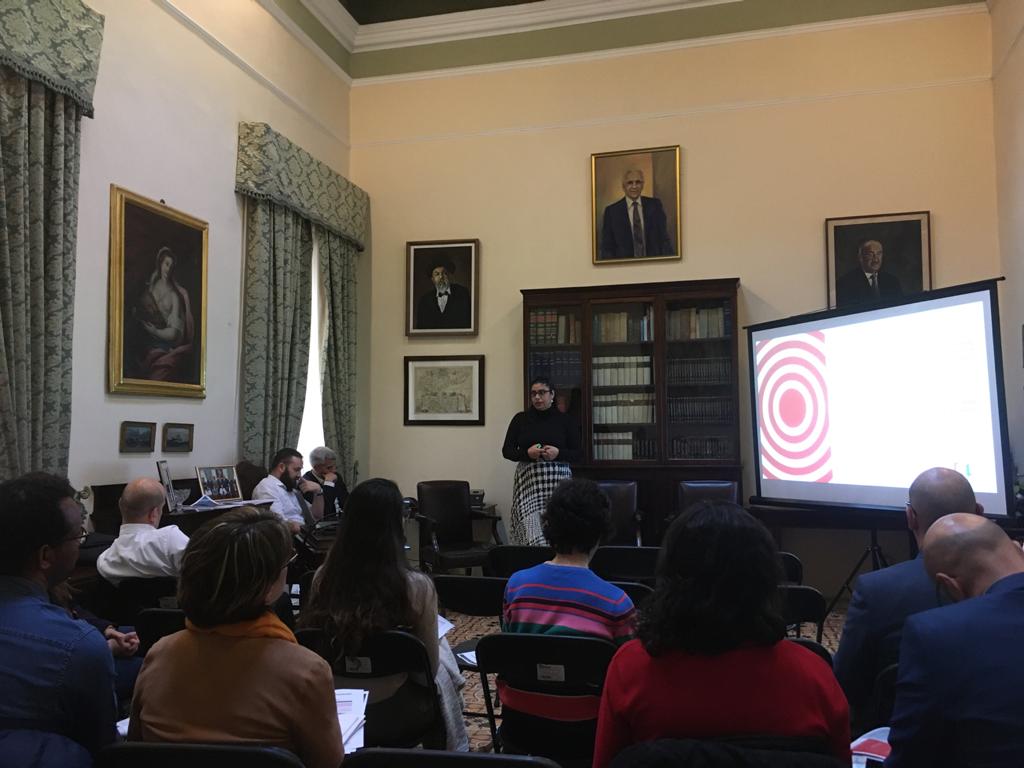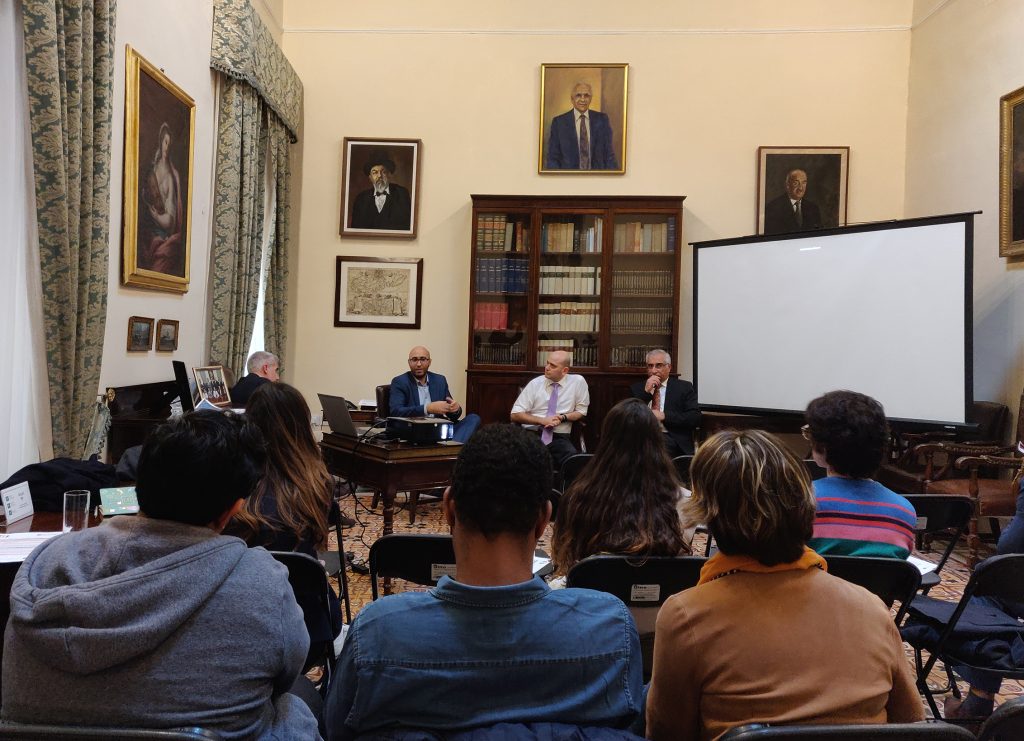Red-Alert Project
Real-time Early Detection and Alert system for online terrorist Content

Due to the disruptions caused by the onset of the Covid-19 pandemic, the RED Alert Consortium submitted a request for an extension of the RED Alert Project, which was granted by the EU Commission, allowing a three-month extension of the project to September 2020.
Since 2017, MITLA has formed part of the Consortium behind the EU’s Horizon 2020 funded research and innovation three-year project for Real-time Early Detection and Alert system for online terrorist Content, referred to as the RED – Alert Project. The vision of the RED – Alert project is to develop a real-time system able to facilitate the timely identification of terrorism related content by summarizing data from social media. Through data mining and predictive analytics tools, the RED – Alert Project will develop Natural Language Processing (NLP), Semantic Media Analysis (SMA), Social Network Analysis (SNA), Complex Event Processing (CEP) and Artificial Intelligence (AI) technologies and combine the same to be validated by law enforcement agencies (LEAs) to collect, process, visualise and store online data related to terrorist groups, allowing them to take coordinated action in real-time, while preserving the privacy of citizens.
The consortium is made up of 15 organizations, including law enforcement agencies from the UK, Spain, Romania, Moldova and Israel, as well as researchers working in technology from Universities and private companies in the UK, Spain, Romania, Israel and Hungary. MITLA is also represented on the Project and has been entrusted with carrying out the legal research into the privacy law implications set out by laws such as the General Data Protection Regulation, as well as the intellectual property issues that arise from creative projects such as this.
SECTION 1 – Privacy Checklist & Public Wiki
MITLA was required to publish a quick and easy-to-use Privacy Checklist and a Public Wiki, intended to provide assistance to general members of the public or of the business community who may be interested in checking, at first-hand and without the involvement of specialist legal advice, whether their activities are compliant with current privacy laws or not.
Privacy Checklist
The checklist was designed in the form of a questionnaire, broken down into a list that allows users to literally mark which elements they are compliant with, and those with which they may not. The Privacy Checklist may be accessed here.
The list does not purport to be a fully comprehensive solution to all privacy legal issues that may arise for prospective users, both within and outside the project, but is simply a tool that enables issues that may cause concern and require escalation to be flagged at initial stages and before problems escalate further.
Public Wiki
The Public Wiki was published in full in the early stages of the Project, in September and October, 2017 and includes an easily accessible set of documents, written in accessible and understandable language that may be viewed on the official project website here.
SECTION 2 – Seminar: Terrorist Content Detection on Social Media
MITLA organised a seminar event on November 22nd, 2019, which was open to its members, to members of the Chamber of Advocates (Malta) and to members of the general public.
The Seminar was held to discuss the key findings of the deliverables that MITLA was responsible for. The Seminar also included a panel composed of representatives from the Office of the Information & Data Protection Commissioner (Mr David Cauchi), the Cybercrime Unit within the Malta Police Force (Insp. Timothy Zammit), and the University of Malta (Professor Joe Cannataci).
Participants were given the opportunity to engage in an open discussion with the panel of speakers, and were also given presentations detailing the deliverables in question and their aims.
The seminar was held in the conference room of Maltese law firm Fenech & Fenech Advocates, and was attended by a healthy number of participants, including students from the University of Malta, and lawyers working in private practice, who all engaged in the discussion.



